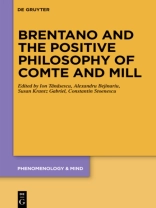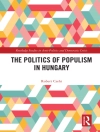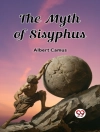Before now, there has been no comprehensive analysis of the multiple relations between A. Comte’s and J.S. Mill’s positive philosophy and Franz Brentano’s work. The present volume aims to fill this gap and to identify Brentano’s position in the context of the positive philosophy of the 19th century by analyzing the following themes: the concept of positive knowledge; philosophy and empirical, genetic and descriptive psychology as sciences in Brentano, Comte and Mill; the strategies for the rebirth of philosophy in these three authors; the theory of the ascending stages of thought, of their decline, of the intentionality in Comte and Brentano; the reception of Comte’s positivism in Whewell and Mill; induction and phenomenalism in Brentano, Mill and Bain; the problem of the "I" in Hume and Brentano; mathematics as a foundational science in Brentano, Kant and Mill; Brentano’s critique of Mach’s positivism; the concept of positive science in Brentano’s metaphysics and in Husserl’s early phenomenology; the reception of Brentano’s psychology in Twardowski; The Brentano Institute at Oxford. The volume also contains the translation of the most significant writings of Brentano regarding philosophy as science. I. Tanasescu, Romanian Academy; A. Bejinariu, Romanian Society of Phenomenology; S. Krantz Gabriel, Saint Anselm College; C. Stoenescu, University of Bucharest.
Alexandru Bejinariu & Susan Krantz Gabriel
Brentano and the Positive Philosophy of Comte and Mill [PDF ebook]
With Translations of Original Writings on Philosophy as Science by Franz Brentano
Brentano and the Positive Philosophy of Comte and Mill [PDF ebook]
With Translations of Original Writings on Philosophy as Science by Franz Brentano
Achetez cet ebook et obtenez-en 1 de plus GRATUITEMENT !
Langue Anglais ● Format PDF ● Pages 629 ● ISBN 9783110734645 ● Éditeur Alexandru Bejinariu & Susan Krantz Gabriel ● Maison d’édition De Gruyter ● Publié 2022 ● Téléchargeable 3 fois ● Devise EUR ● ID 9435159 ● Protection contre la copie Adobe DRM
Nécessite un lecteur de livre électronique compatible DRM












